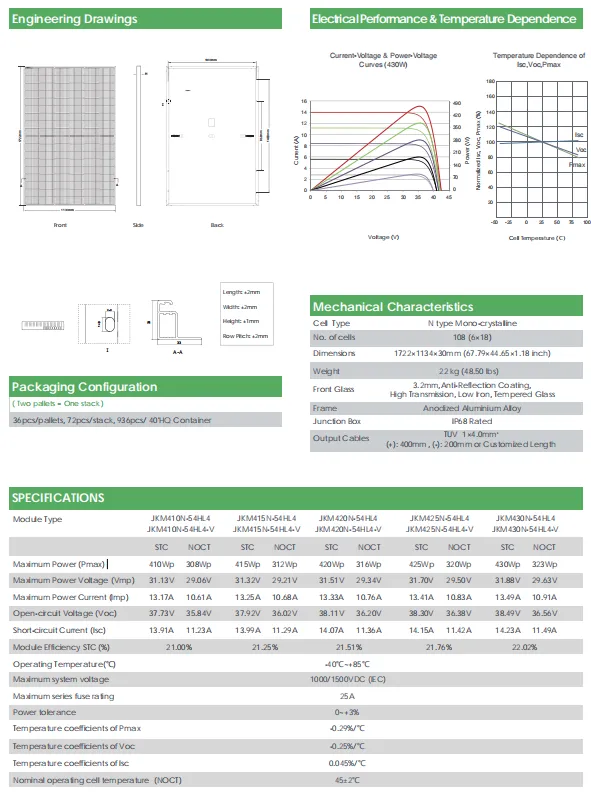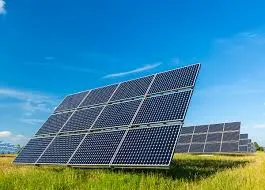Affordable 150W Solar Panels High Efficiency & Best Price Deals
- Understanding the Cost Structure of 150-Watt Solar Panels
- Technical Advantages of 150W Solar Panels in Off-Grid Systems
- Market Comparison: Top Brands Offering 150W Solar Panels
- Custom Solutions for Residential and Commercial Applications
- Case Study: Implementing 150W Panels in Rural Energy Projects
- Budgeting Tips for Solar Panel Installation and Maintenance
- Future Trends in 150-Watt Solar Panel Pricing and Technology

(150 solar panel price)
Understanding the Cost Structure of 150-Watt Solar Panels
The average 150 solar panel price
ranges between $120 and $250 per unit, depending on technology, brand, and certifications. Monocrystalline panels typically cost 15-20% more than polycrystalline alternatives due to higher efficiency (18-22% vs. 15-17%). For example, a 150W 12-volt monocrystalline panel from Renogy retails at $189, while a polycrystalline version from HQST costs $139. Key cost drivers include:
- Raw material quality (silicon grade)
- Temperature coefficient (-0.35%/°C for premium models)
- IP68 junction box and bypass diode configurations
Technical Advantages of 150W Solar Panels in Off-Grid Systems
150-watt panels excel in portability and scalability, delivering 600-800Wh daily under 5 peak sun hours. Their 12V configuration simplifies integration with batteries like LiFePO4, reducing inverter costs. Advanced models feature:
- ETFE coating for 97% light transmittance
- PID-resistant cells maintaining 95% output after 25 years
- Multi-contact busbars minimizing resistance losses
Market Comparison: Top Brands Offering 150W Solar Panels
| Brand | Price | Efficiency | Warranty |
|---|---|---|---|
| Renogy | $189 | 21.5% | 25 years |
| Rich Solar | $167 | 19.8% | 10 years |
| Newpowa | $145 | 18.2% | 5 years |
Custom Solutions for Residential and Commercial Applications
Customizable 150W solar kits adapt to specific energy needs:
- Off-grid homes: 6-panel array (900W) + 5kWh battery = $2,300-$3,100
- RV systems: 3 panels + MPPT controller = $700-$950
- Telecom towers: Scalable 48V configurations with 92% efficient charge controllers
Case Study: Implementing 150W Panels in Rural Energy Projects
A 2023 deployment in rural Maharashtra, India, utilized 320 x 150W panels to power 50 households. Key metrics:
- System cost: $28,500 ($0.59/W)
- Annual output: 58,400 kWh
- ROI period: 4.2 years
Budgeting Tips for Solar Panel Installation and Maintenance
Allocate 20-30% of total budget for balance-of-system components:
- Mounting structures: $15-$25 per panel
- Professional installation: $0.75-$1.25 per watt
- Annual maintenance: 0.5-1% of system cost
Future Trends in 150-Watt Solar Panel Pricing and Technology
Industry analysts project a 7-9% annual decline in 150 watt solar panel price through 2028, driven by:
- Perovskite tandem cell commercialization (targeting 30% efficiency)
- Automated production cutting labor costs by 40%
- Recyclable panel initiatives reducing material costs 18-22%

(150 solar panel price)
FAQS on 150 solar panel price
Q: What is the average price range for a 150-watt solar panel?
A: The average price for a 150-watt solar panel ranges between $100 and $250, depending on brand, efficiency, and included features like mounting hardware or connectors.
Q: How much does a 150-watt 12-volt solar panel cost compared to other models?
A: A 150-watt 12-volt solar panel typically costs $120 to $300, slightly higher than lower-wattage panels but offers better energy output for off-grid or RV systems.
Q: Are 150-watt solar panels cost-effective for small setups?
A: Yes, 150-watt panels are cost-effective for small setups like cabins or camping, offering a balance between affordability and sufficient power generation for basic needs.
Q: What factors influence the price of a 150-watt solar panel?
A: Key factors include panel efficiency, material quality (monocrystalline vs. polycrystalline), brand reputation, and additional components like charge controllers or warranties.
Q: Where can I find the best deals on 150-watt solar panels?
A: Reliable deals are available on platforms like Amazon, specialized solar retailers (e.g., Renogy), or local suppliers, especially during seasonal sales or bulk purchase discounts.
-
String Solar Inverter: The High-Efficiency Solution for Smart Solar EnergyNewsJul.14,2025
-
Revolutionizing Rooftop Energy with the Power of the Micro Solar InverterNewsJul.14,2025
-
Power Independence with Smart Off Grid Solar Inverter SolutionsNewsJul.14,2025
-
On Grid Solar Inverter: Powering the Future with Smart Grid IntegrationNewsJul.14,2025
-
Monocrystalline Solar Panels: High-Efficiency Power for the Future of Clean EnergyNewsJul.14,2025
-
Bifacial Solar Panel: A Smarter Investment for Next-Generation Energy SystemsNewsJul.14,2025







